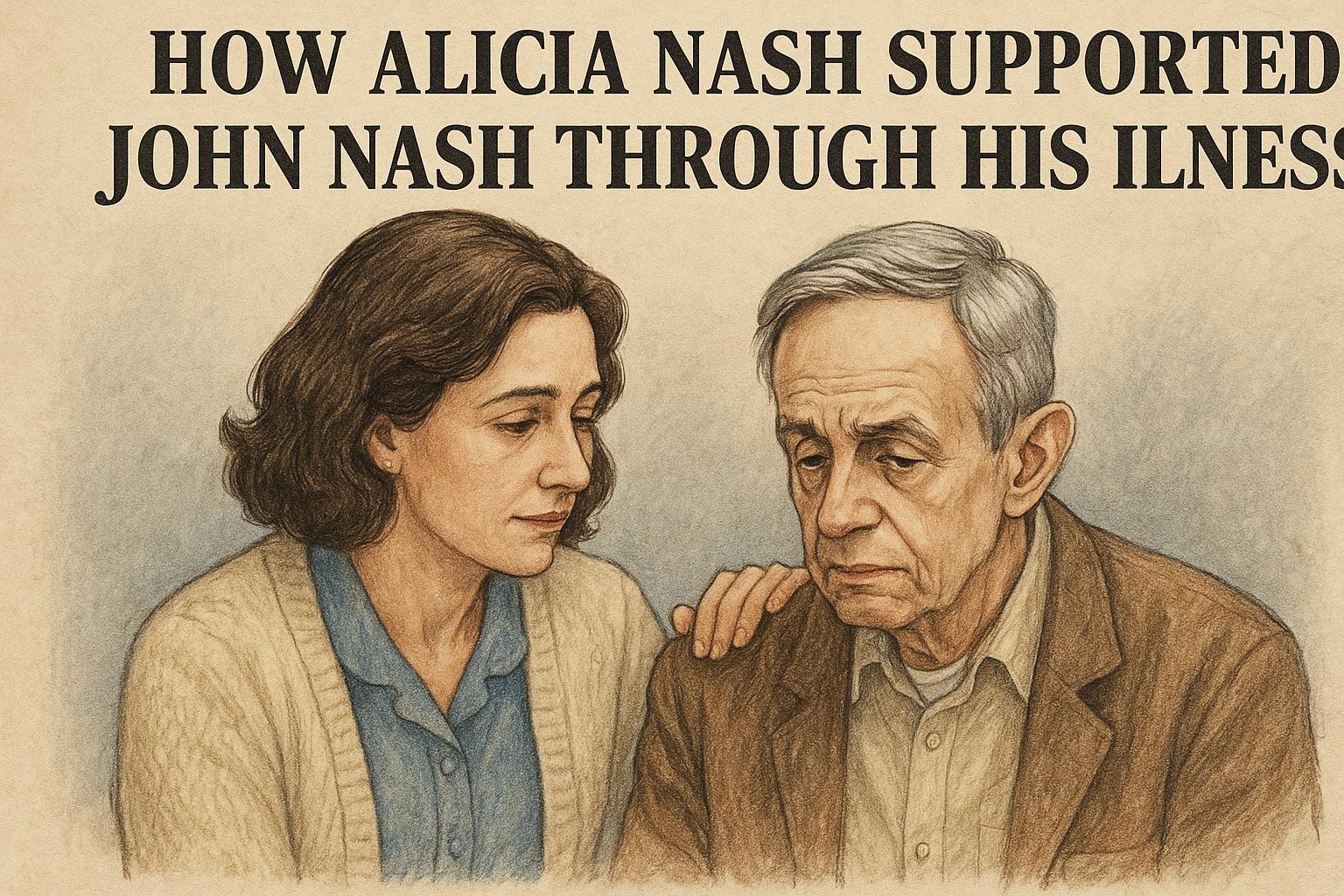Alicia Nash’s Role in Supporting John Nash
Alicia Nash played a crucial role in supporting her husband, John Nash, throughout his battle with schizophrenia. John Nash, a renowned mathematician and Nobel Laureate, experienced severe mental health challenges. Alicia’s dedication and resilience were pivotal in managing his illness and safeguarding his legacy.
Early Relationship and Initial Challenges
Alicia and John Nash married in 1957. This marked the beginning of a partnership that would endure significant trials. Not long after their marriage, John began to exhibit unusual behavior. It was a confusing and distressing situation for Alicia, as the symptoms of schizophrenia—paranoia, hallucinations, and erratic behavior—began to manifest. In the 1950s, the understanding of mental health conditions was far from what it is today. The stigma surrounding mental illness, compounded with a lack of resources and effective treatment options, made Alicia’s situation particularly challenging. She found herself caught between supporting her husband and navigating an unprepared mental health care system.
Commitment to His Well-being
Despite the overwhelming nature of John’s condition, Alicia remained steadfast in her commitment to his well-being. She was instrumental in key decisions regarding his treatment, including multiple hospitalizations. These decisions were not easy; they often came with significant personal and emotional burdens. Yet, Alicia consistently prioritized John’s health, displaying a commitment that few might maintain under such circumstances. This commitment included ensuring that John adhered to prescribed medications, despite the difficulties this sometimes involved due to his resistance and the side effects of the drugs.
Advocating for Quality Care
Alicia’s role extended beyond the home as she became an advocate for John within the broader healthcare system. Her tireless efforts ensured that he received the best care available, which often meant pushing for treatments that would preserve John’s dignity and autonomy. This was no small feat in an era where mental health patients had limited rights. Alicia diligently worked to balance the medical necessities with a profound respect for John’s dignity as a person and as a mathematician. At home, she was equally devoted, striving to create an environment that would foster and support John’s recovery.
Challenges in Healthcare Navigation
Navigating the healthcare system, particularly one as complex and underdeveloped in terms of mental health care as it was at the time, required resilience and tenacity from Alicia. She became adept at understanding medical language and processes, often having to balance the opinions of multiple professionals while keeping John’s best interests at heart. Alicia demonstrated an impressive ability to manage these complexities, always with the aim of securing effective and respectful treatment options for her husband.
Resilience During Separation and Reunion
The strains of John’s illness eventually led to their separation in the early 1960s. This period was marked by great personal turmoil for Alicia, as she managed the demands of their family life along with the complexities of John’s condition. Despite their physical separation, Alicia remained a crucial influence in John’s life. She never severed ties, maintaining close contact and providing guidance whenever necessary. This separation did not diminish her commitment to John’s recovery and well-being. Their eventual reunion as a couple in 1970 was a testament to the enduring bond and commitment they shared. This reunion signified not only a personal triumph for the couple but also a significant step in John’s journey towards stabilization and recovery.
Facilitating a Return to Academia
Under Alicia’s nurturing guidance, John Nash was able to re-establish himself in academia by the late 1970s. Her support provided him with the stability and reassurance he needed to focus on his mathematical work. Alicia’s encouragement played a vital role in his ability to return to Princeton University, where he was eventually awarded the Nobel Prize in Economic Sciences in 1994. This achievement validated John’s work and marked the culmination of years of perseverance, not just on John’s part, but for Alicia as well.
Creating an Environment for Success
The supportive environment Alicia cultivated was critical to John’s resurgence in academia. She handled logistical elements of their life together, allowing John the mental space to concentrate on his research. This environment was marked by patience and understanding—qualities that were essential as John navigated the demands of high-level academic work alongside the challenges of his condition.
Legacy and Impact
Alicia Nash’s role in John Nash’s life is a powerful testament to the profound impact a dedicated caregiver can have on an individual’s ability to manage mental illness. Her commitment was not limited to personal devotion; it intersected with a broader discourse on mental health care, highlighting the challenges and responsibilities of supporting someone with schizophrenia.
Contribution to Mental Health Awareness
By standing by John through decades of mental health challenges, Alicia inadvertently contributed to a change in how schizophrenia and other mental illnesses are perceived. She helped cast a light on the real-life challenges faced by caregivers, sparking discussions and inspiring caregivers worldwide. Her advocacy and unwavering support continue to inspire those involved in mental health care and support networks.
Read more about John and Alicia Nash’s legacy to understand the profound effects of compassionate caregiving in mental health.
This article was last updated on: October 17, 2025

